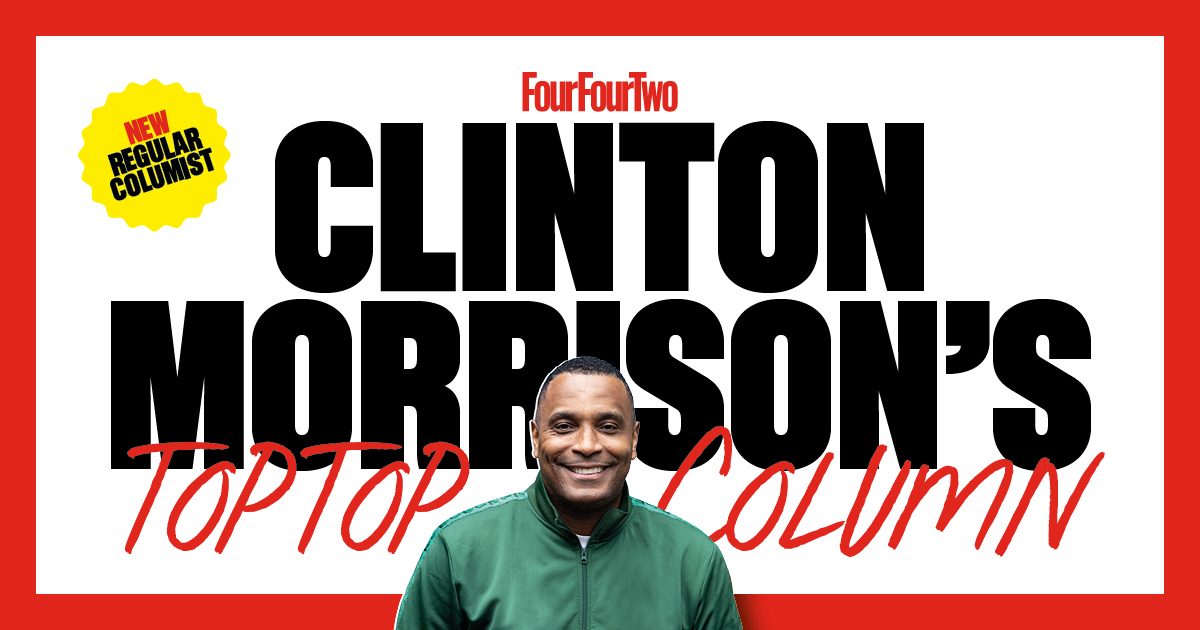From Aberdeen to Manchester United: all of Sir Alex Ferguson's career titles
Alex Ferguson's first trophy at Manchester United arrived 35 years ago. Here, a look at all of the career titles for the legendary Scottish manager...
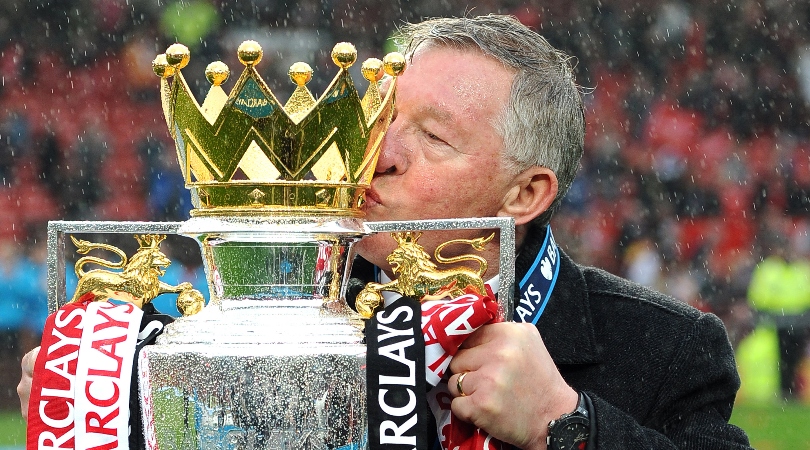
The best features, fun and footballing quizzes, straight to your inbox every week.
You are now subscribed
Your newsletter sign-up was successful
Want to add more newsletters?
Join the club
Get full access to premium articles, exclusive features and a growing list of member rewards.
Alex Ferguson was appointed as Manchester United manager in 1986, but the first few years at Old Trafford were difficult for the former Aberdeen boss.
Under severe pressure during his early seasons at United, Ferguson was understood to be very close to the sack, but the Scottish manager went on to win 38 trophies in an extraordinary 26-year spell at the club.
It all started with the FA Cup in 1990 as United overcame Crystal Palace in a replay, beating the south London side 1-0 after a 3-3 draw in the first match at Wembley.
Here, a look at all of Ferguson's trophies in an amazing managerial career...
Scottish First Division (St Mirren)
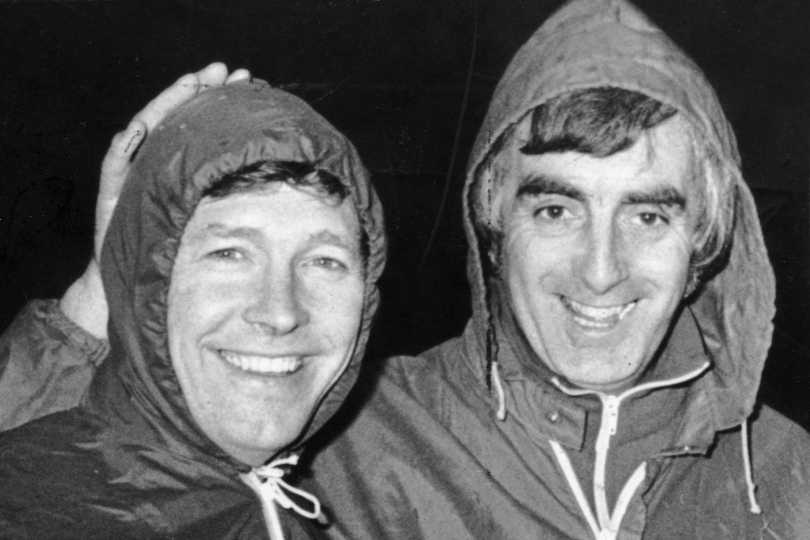
After starting his managerial career in a part-time role at East Stirlingshire at the age of just 32, Alex Ferguson was appointed by St Mirren just a few months later in October 1974.
Ferguson managed St Mirren between 1974 and 1978, leading the Buddies up from Scotland's third tier to the Premier Division and winning the First Division title with a young side in 1976/77.
Scottish Premier Division (Aberdeen)
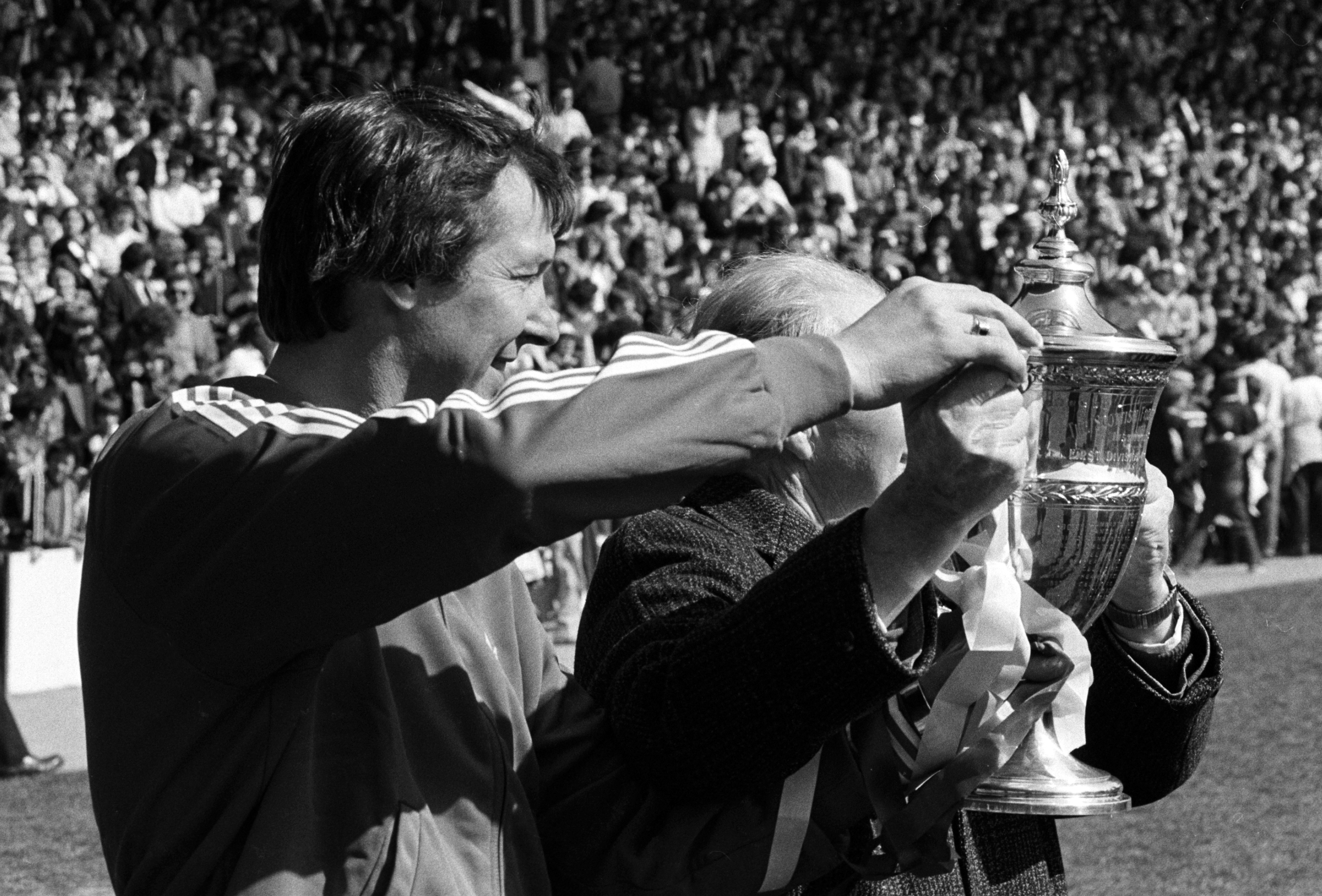
Alex Ferguson joined Aberdeen in June 1978 and led the Dons to the first of three Scottish Premier Division titles in his second season in charge at Pittodrie.
The best features, fun and footballing quizzes, straight to your inbox every week.
Ferguson's Aberdeen beat Celtic to the championship by a single point in 1979/80 and went on to win the title again in 1983/84 and 1984/85.
Scottish Cup (Aberdeen)
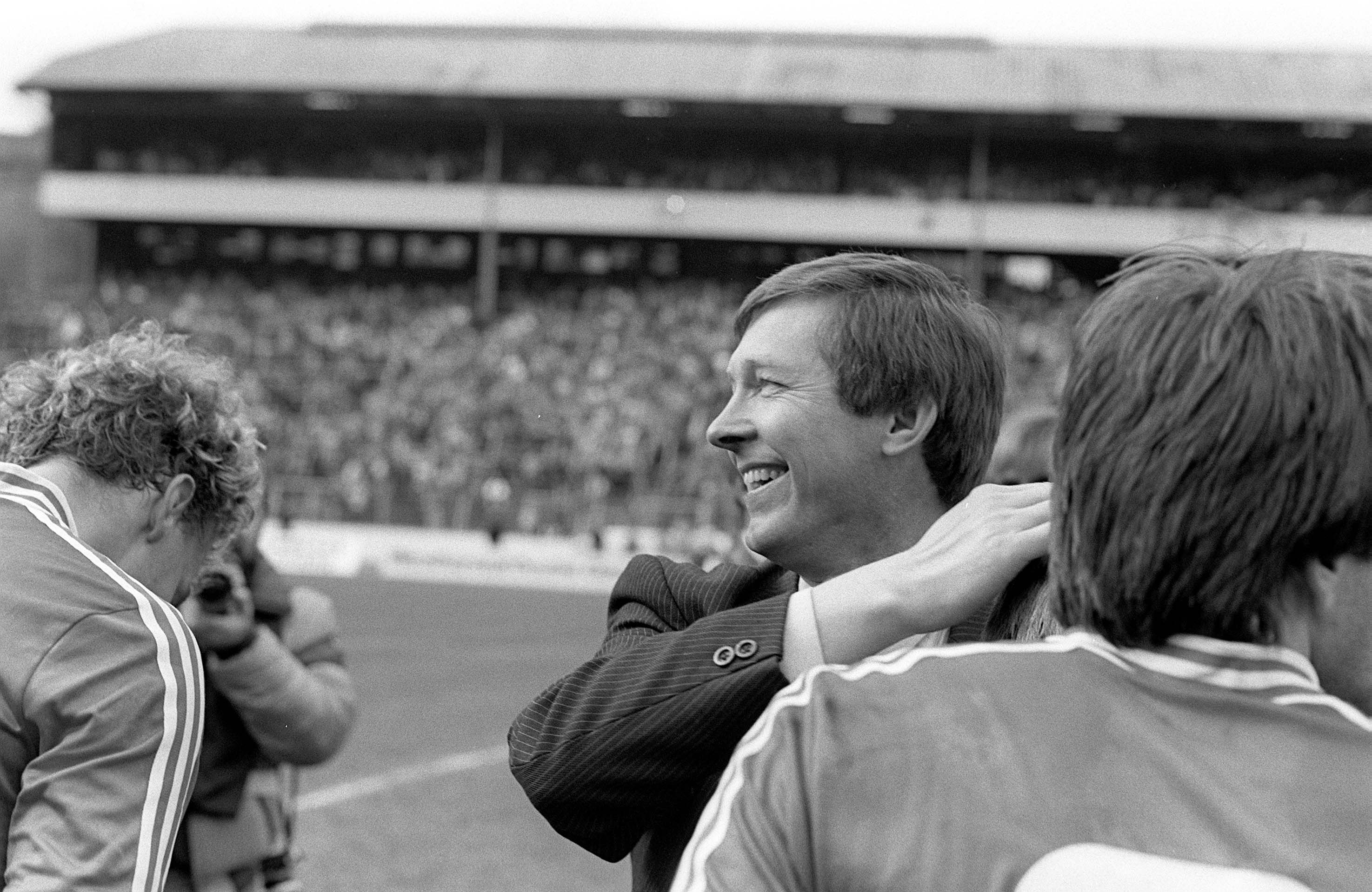
As well as leading Aberdeen to three Scottish Premier Division titles, Alex Ferguson also oversaw four Scottish Cup wins with the Dons.
Aberdeen beat Rangers 4-1 after extra time to win the first of those in May 1982. Ferguson's side defeated the Glasgow giants after extra time again the following season, this time by a single goal, before edging out Celtic in the 1984 final and victory over Hearts in 1986.
Scottish League Cup (Aberdeen)
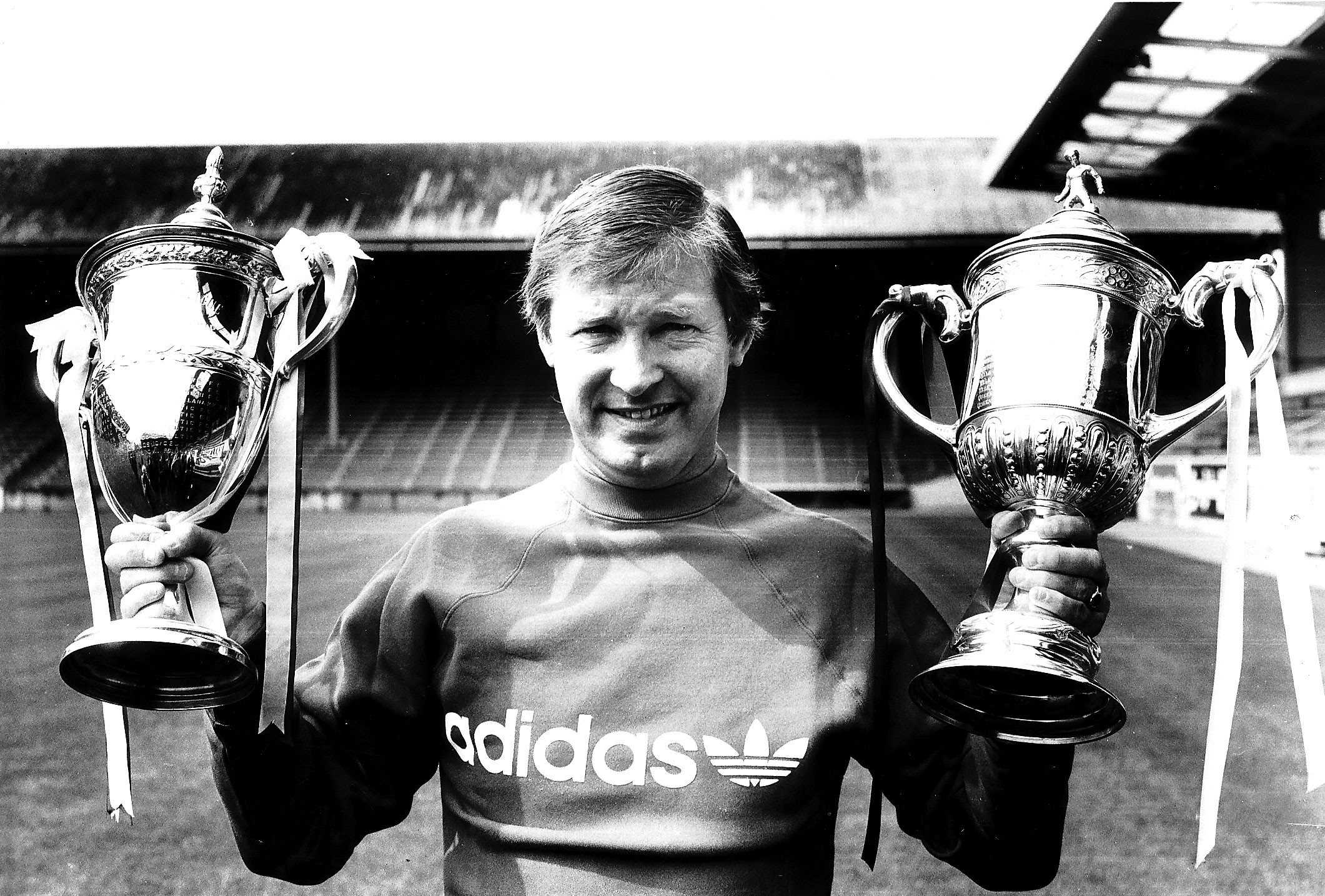
During his time at Aberdeen, Alex Ferguson also won the Scottish League Cup as the Dons took the trophy in the 1985/86 season.
John Black scored twice and William Stark netted the other as Aberdeen beat Hibernian 3-0 in the final at Hampden Park in October 1985.
Drybrough Cup (Aberdeen)
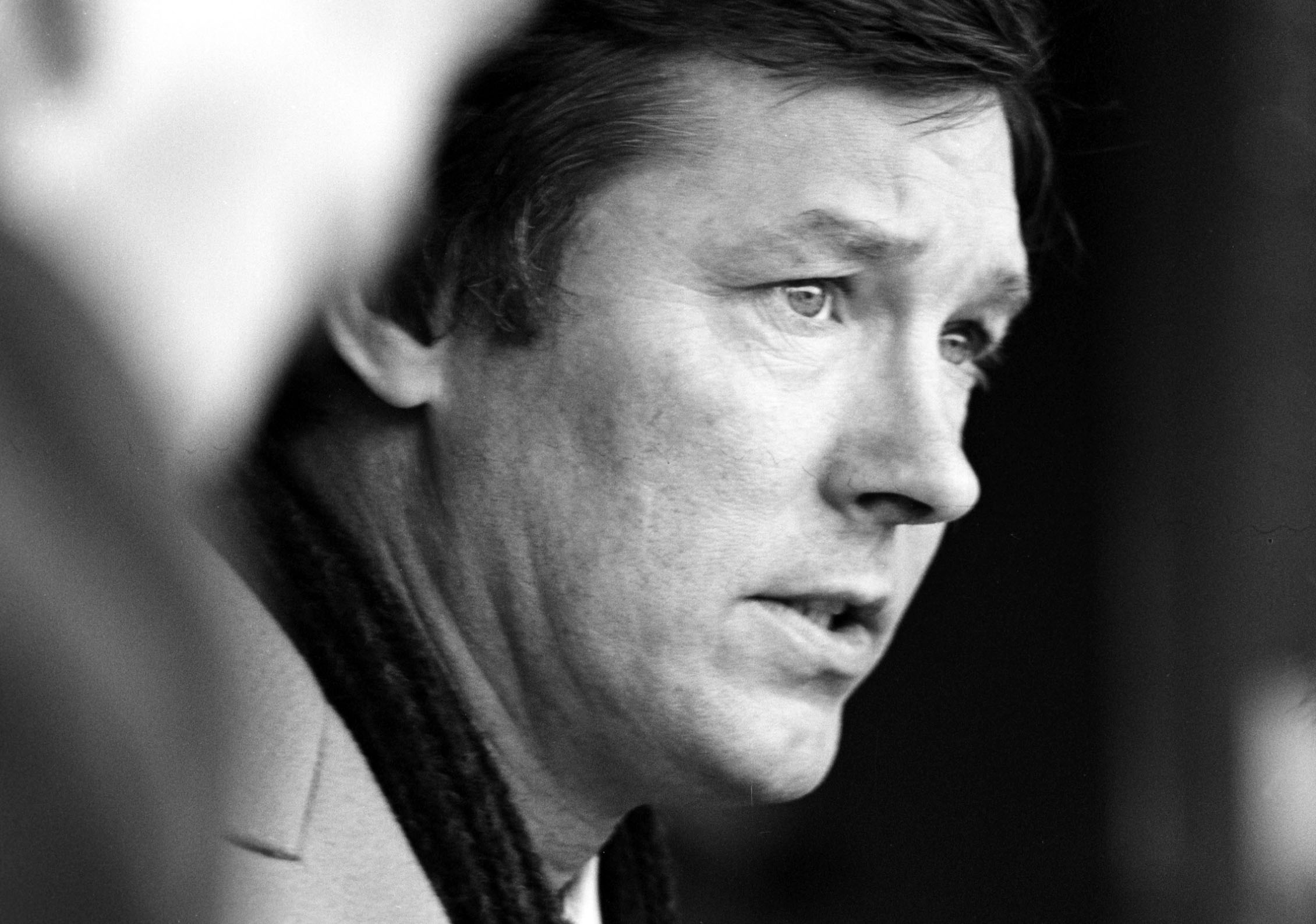
Six editions of the Drybrough Cup were held in Scotland between 1971 and 1980, with Aberdeen the winners on two occasions.
With existing competitions not allowed by the Scottish FA to have a sponsor, the cup was created as a new tournament and took the name of the Drybrough Brewery. Inaugural winners in 1971, the Dons won the eight-club competition again under Ferguson in 1980, beating St Mirren 2-1 in the final.
European Cup Winners' Cup (Aberdeen)
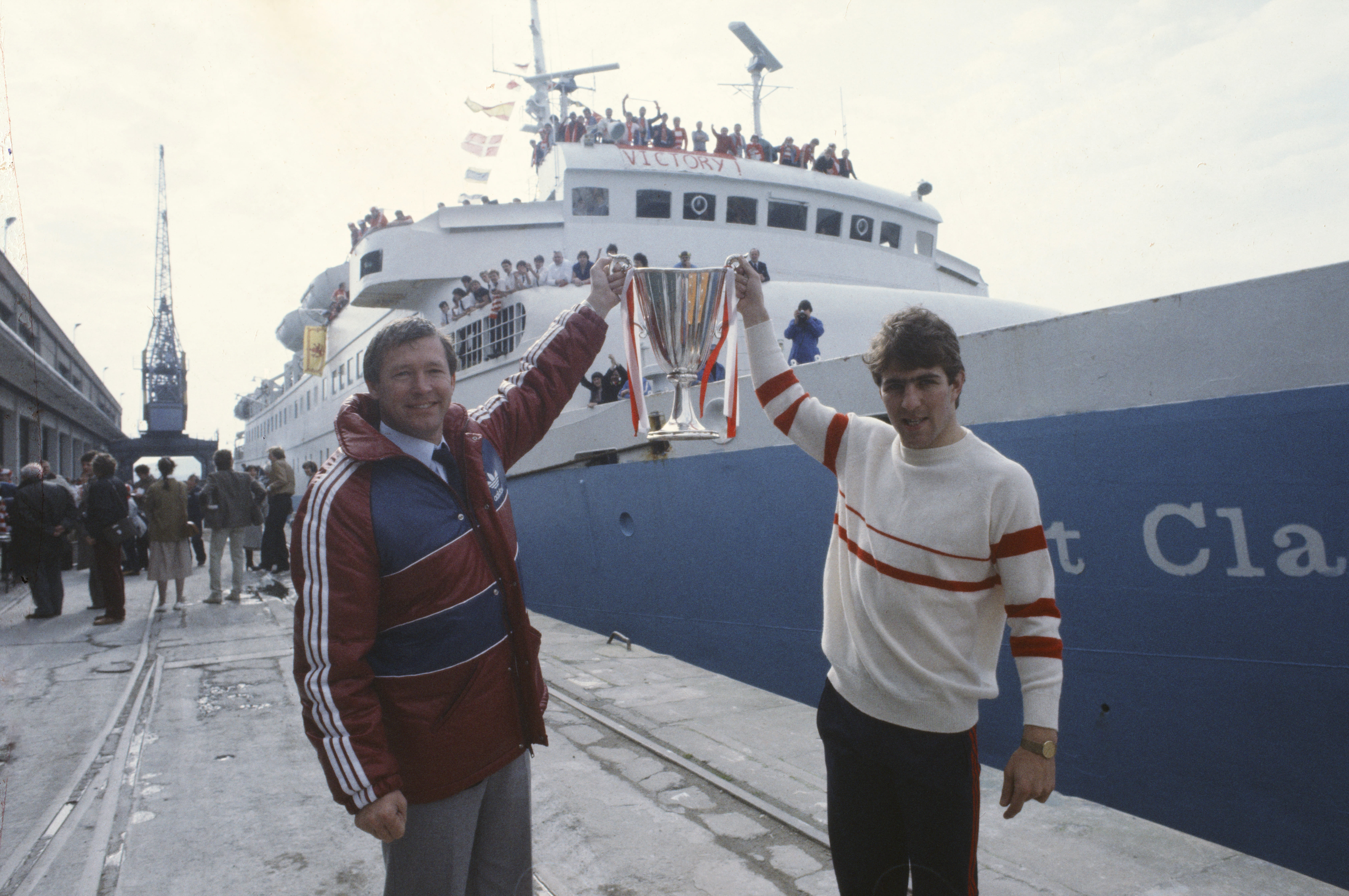
It seems unthinkable now, but in May 1983 Aberdeen beat Spanish giants Real Madrid in the final of a European competition.
John Hewitt scored the winning goal in extra time as Alex Ferguson's side defeated Los Blancos 2-1 in Gothenburg to claim the European Cup Winners' Cup, the Scot's most famous achievement with the Dons.
European Super Cup (Aberdeen)
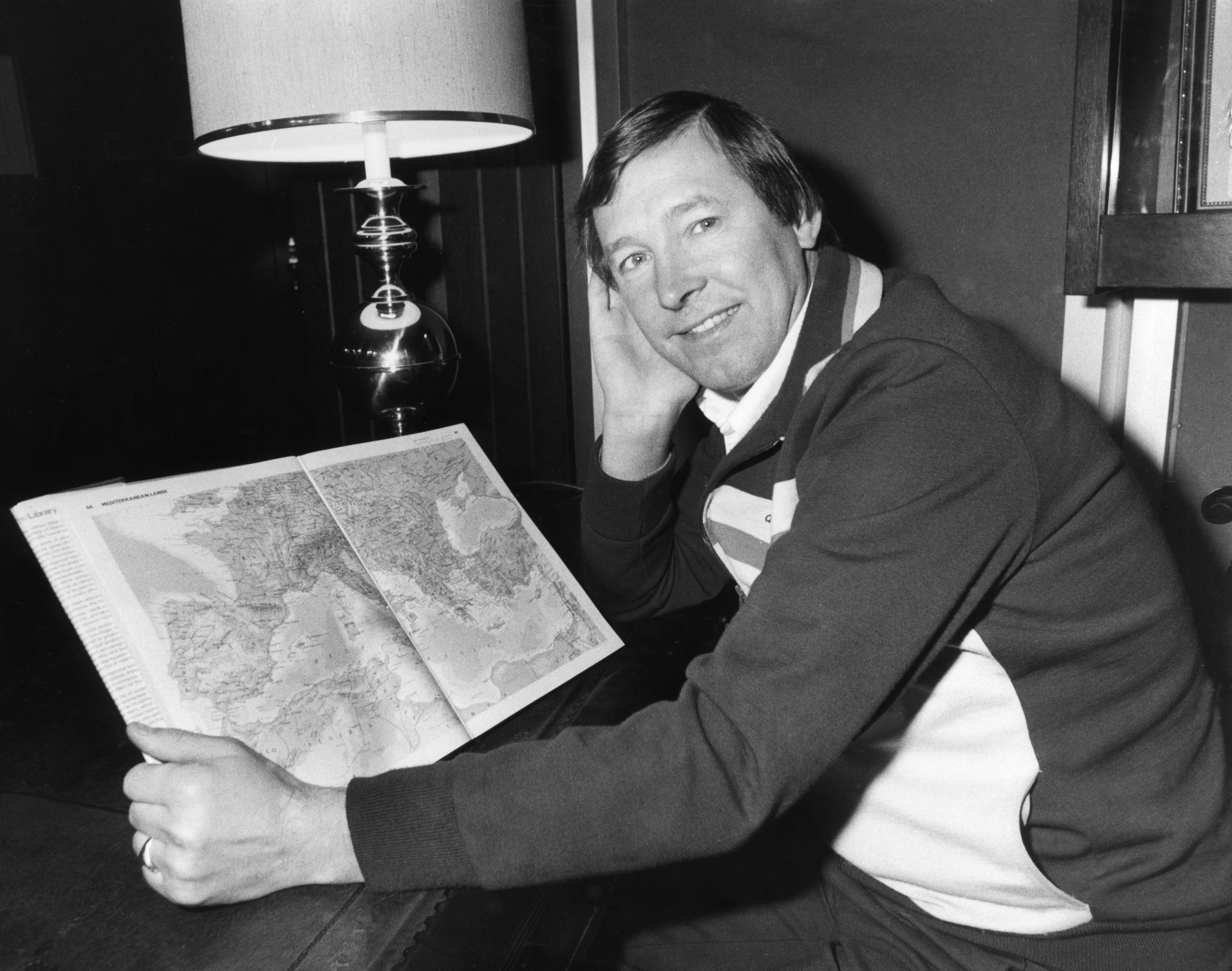
Aberdeen followed up their European Cup Winners' Cup success by adding the European Super Cup in December 1983.
After a 0-0 draw away to European champions Hamburg in November, Alex Ferguson's side beat the Bundesliga club 2-0 at Pittodrie with second-half goals from Neil Simpson and Mark McGhee.
Premier League (Manchester United)
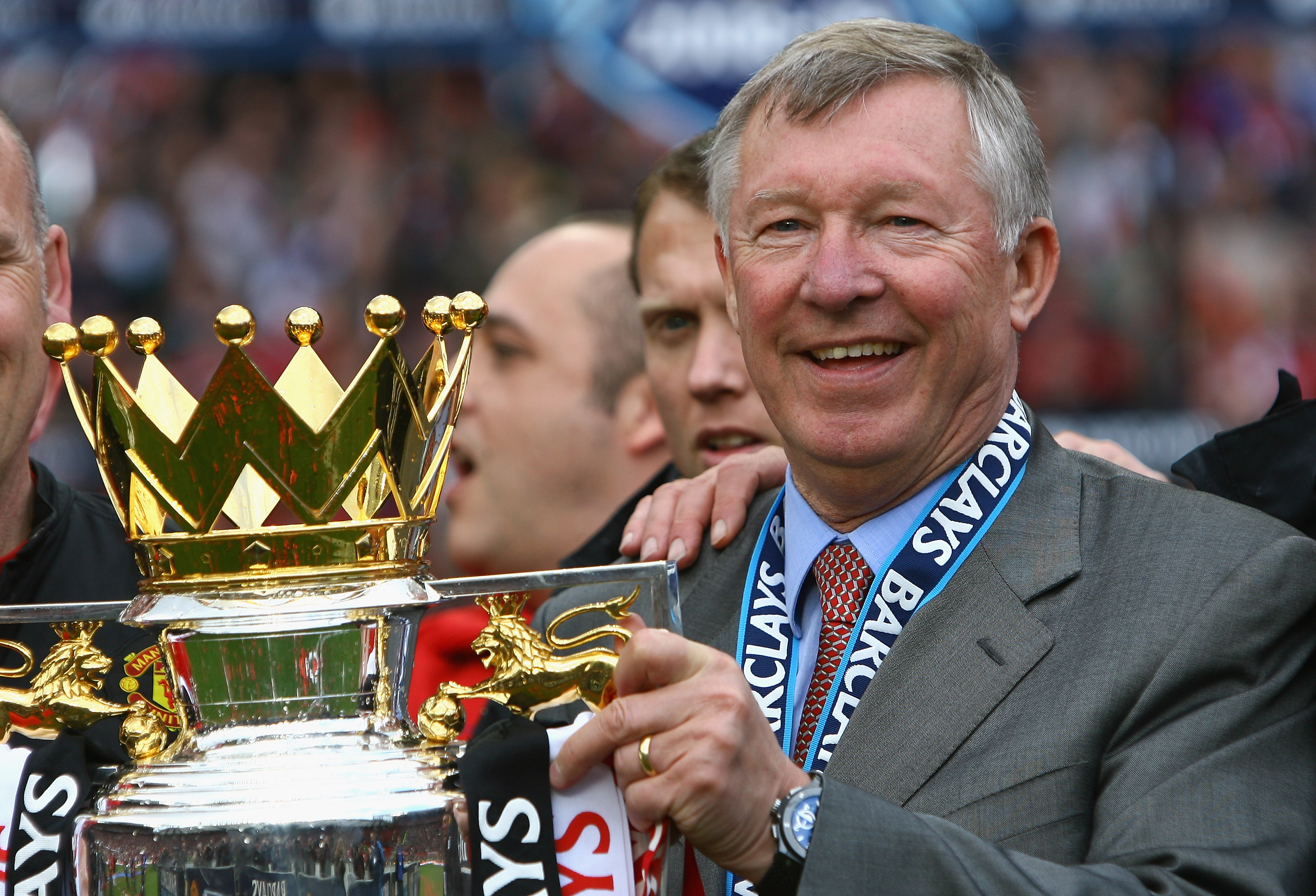
Before Alex Ferguson's arrival at Manchester United, the Old Trafford outfit had not won a league title since the 1960s.
But after a difficult first few seasons, Ferguson transformed the club and built an exciting team around a core of talented young players. Ferguson led United to four out of the first five championships in the Premier League era and went on to win 13 titles in total, including in his final season in charge in 2012/13.
FA Cup (Manchester United)
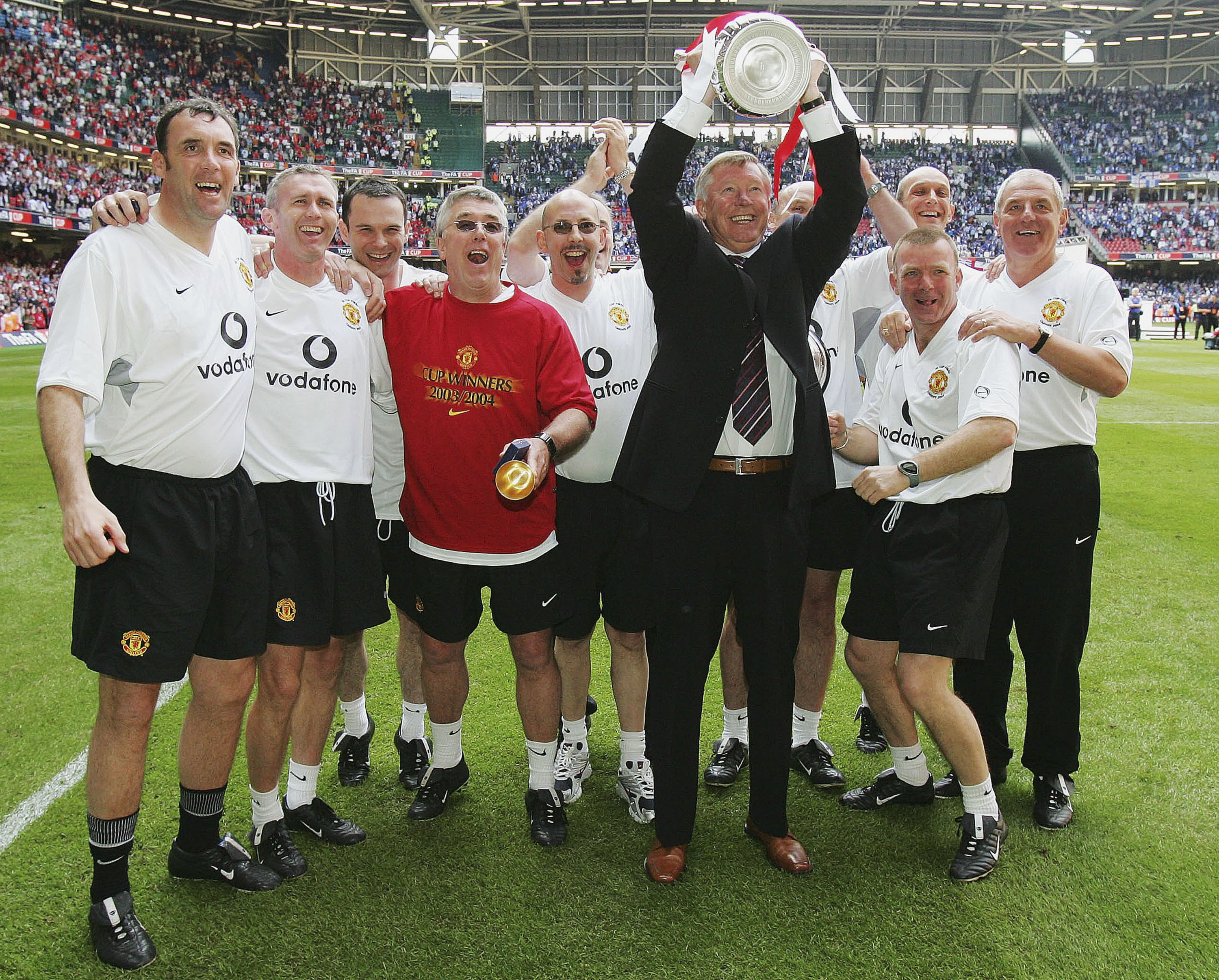
The FA Cup was Alex Ferguson's first trophy as Manchester United manager and the Scot went on to win the competition five times.
After beating Crystal Palace in a replay in 1990, United thrashed Chelsea 4-0 in the 1994 final, edged out Liverpool in 1996, defeated Newcastle United en route to the treble in 1999 and were 3-0 winners against second-tier Millwall in 2004.
League Cup (Manchester United)
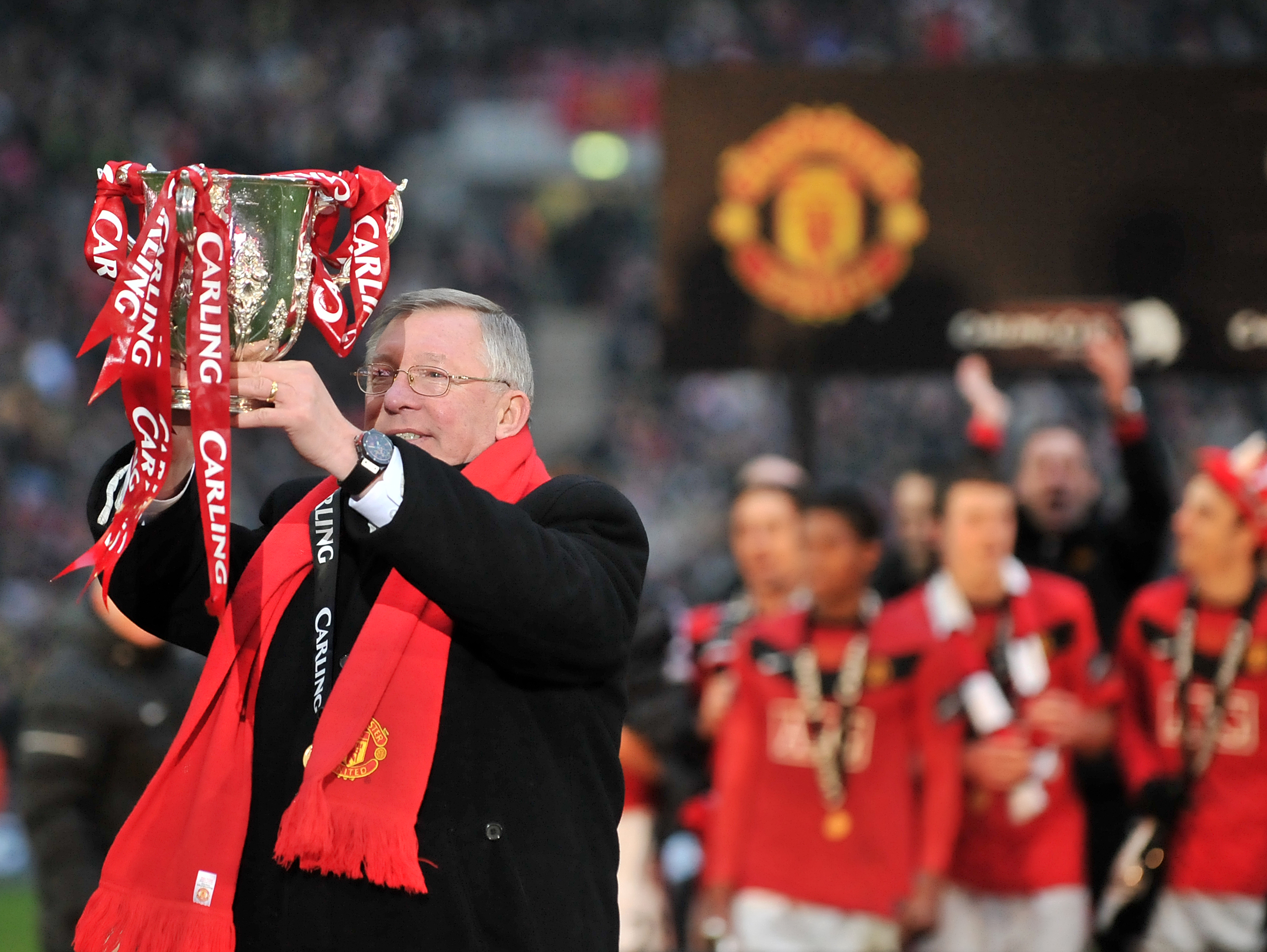
The League Cup was rarely top priority for Alex Ferguson during his long tenure at Manchester United, but the Scot did once describe it as "a pot worth winning" and he won it four times overall.
United beat Nottingham Forest 1-0 in the 1992 final to win the League Cup for the first time. Ferguson led the Red Devils to the trophy again in 2006, 2009 and 2010, with victories over Wigan Athletic, Tottenham (on penalties) and Aston Villa, respectively.
Charity/Community Shield (Manchester United)
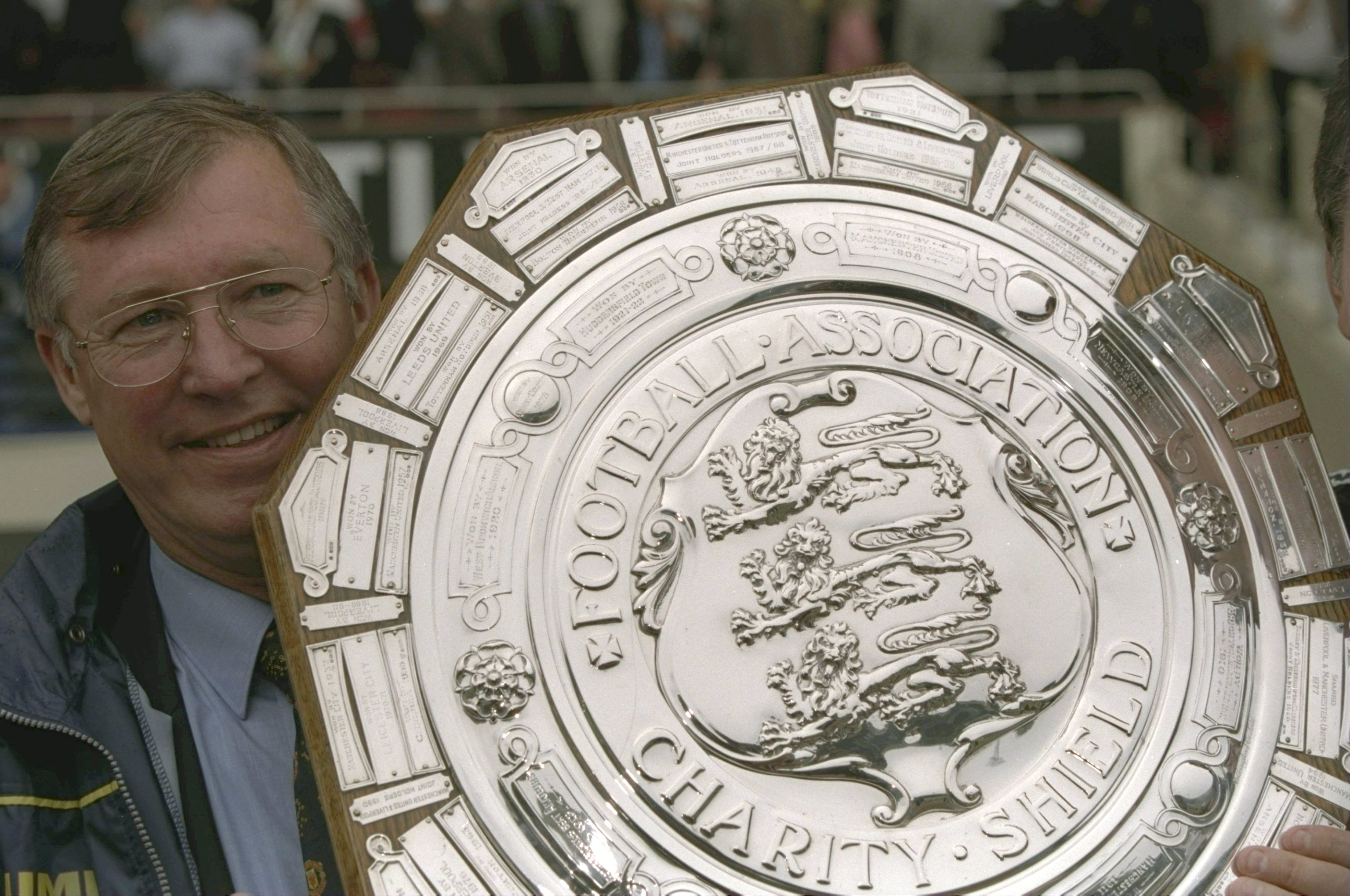
Although not considered a major trophy by most in English football, the Charity Shield (now Community Shield) does give the previous season's league and cup winners the chance to start the new campaign with a piece of silverware.
During Alex Ferguson's time at Manchester United, the club were regularly involved in the fixture and he won it 10 times overall, sharing the first with Liverpool in 1990 before penalties were introduced to decide the winner when the match was a draw.
Champions League (Manchester United)
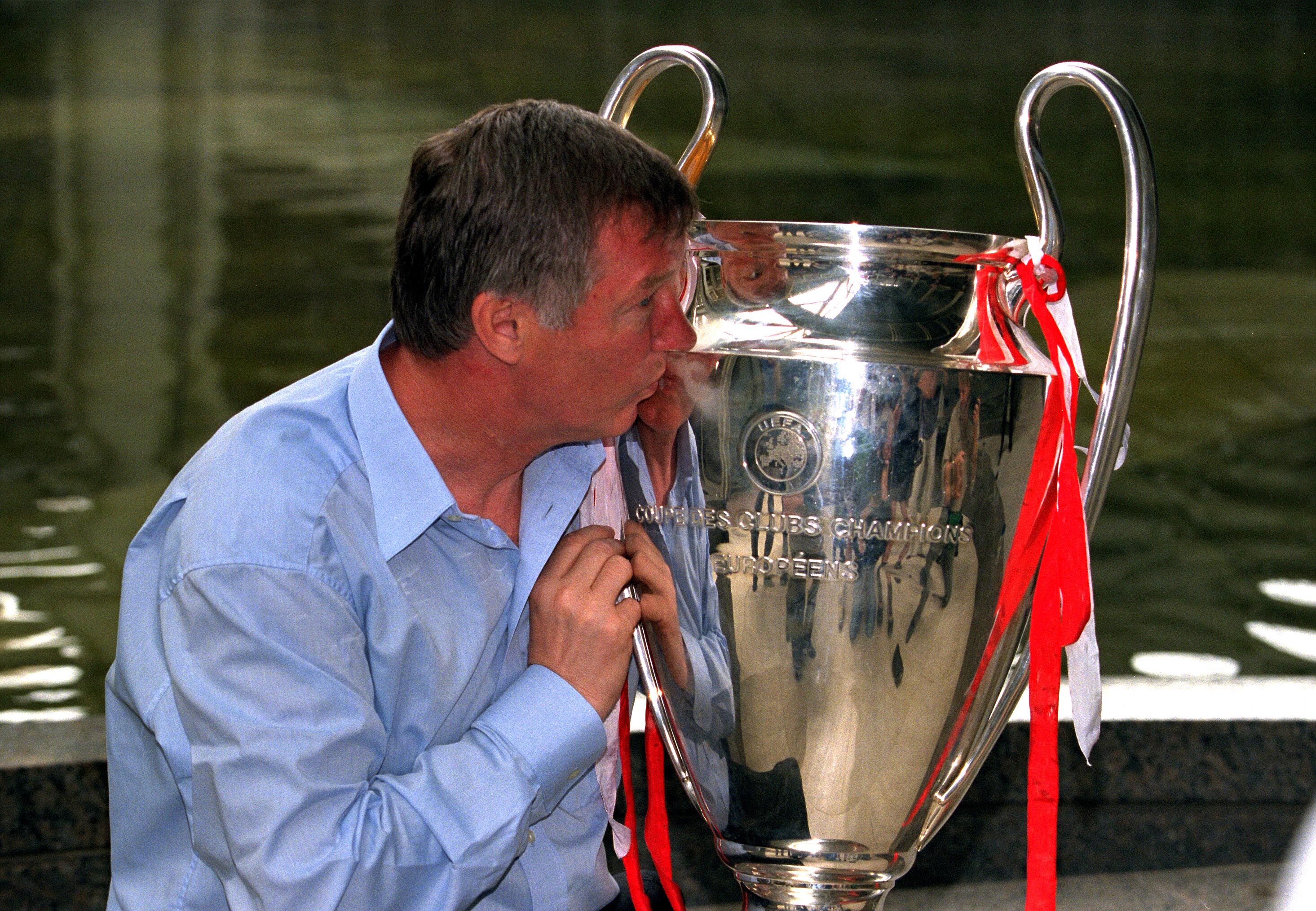
Manchester United have won the European Cup three times in their history and Alex Ferguson was in charge for two of those victories.
Champions in 1999 after a late comeback against Bayern Munich at Camp Nou completed a treble, United beat Chelsea on penalties to win the trophy again in 2008. Ferguson was also a runner-up with the Red Devils in 2009 and 2011, beaten by Barcelona both times.
European Cup Winners' Cup (Manchester United)
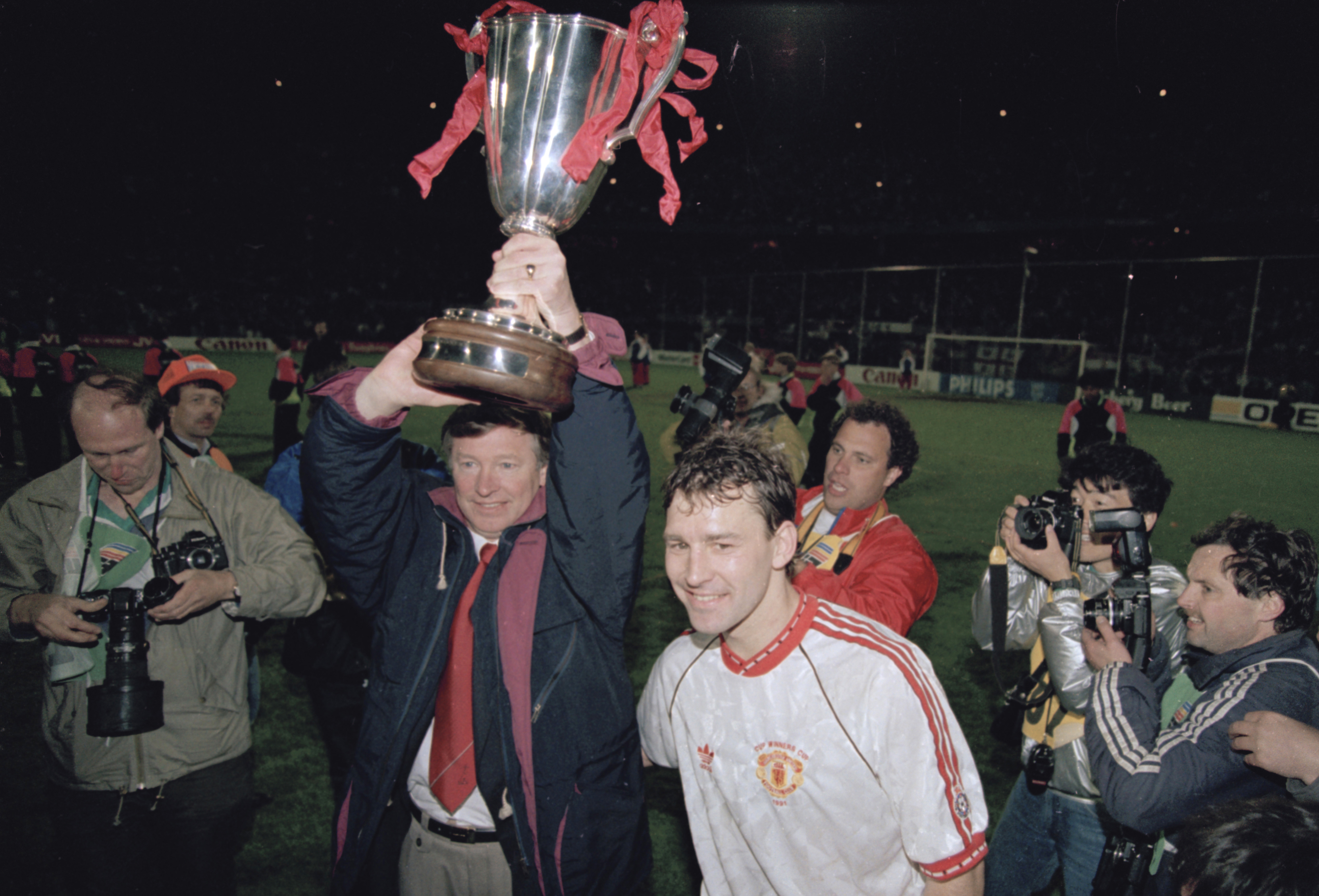
Eight years after leading Aberdeen to the European Cup Winners' Cup with victory over Real Madrid in Gothenburg, Alex Ferguson won the trophy again as Manchester United beat Barcelona in Rotterdam in May 1991.
It was the first season back in Europe for English clubs after a five-year ban following the Heysel disaster and Mark Hughes scored twice in a 2-1 win over Barça to seal a first continental trophy for Ferguson at United.
European Super Cup (Manchester United)
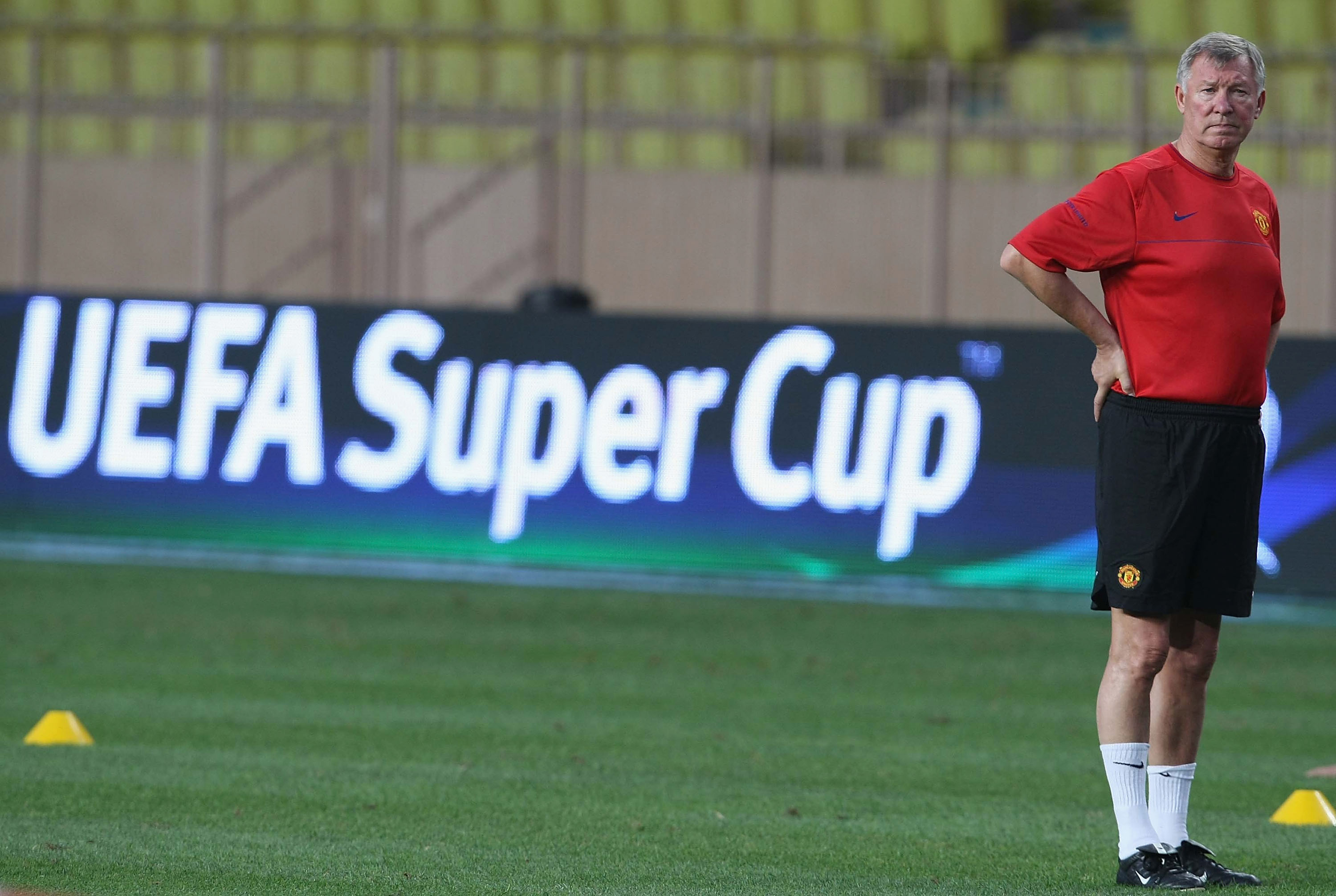
Brian McClair scored the only goal of the game as Manchester United beat Red Star Belgrade 1-0 at Old Trafford to win the UEFA Super Cup in November 1991.
Usually played over two legs at that time, it was decided that there would be only one match due to unrest in Yugoslavia. Alex Ferguson was involved in the UEFA Super Cup twice more, but United lost 1-0 to Lazio in 1999 and 2-1 to Zenit St Petersburg in 2008.
Intercontinental Cup (Manchester United)
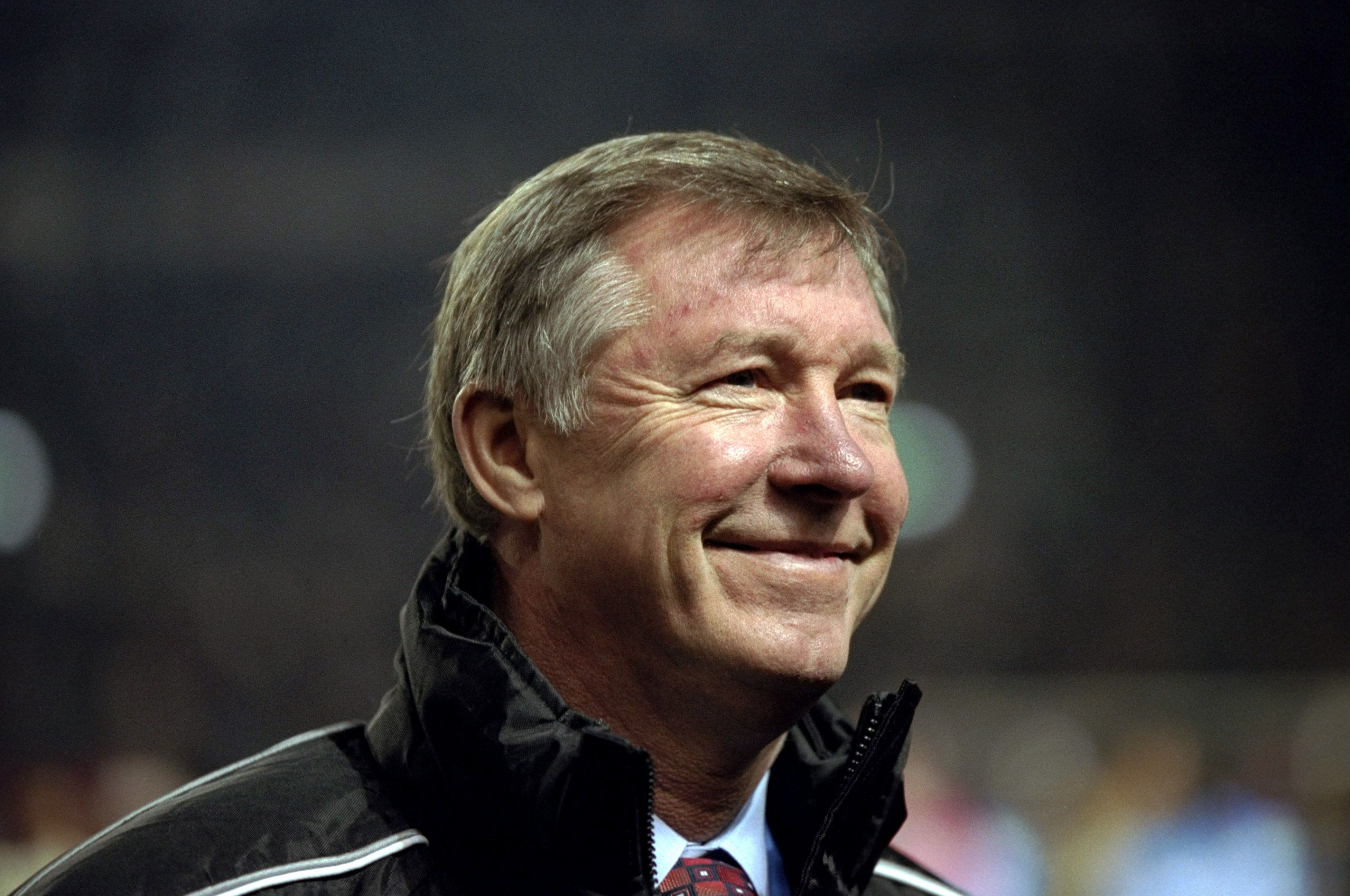
Victory in the 1999 Champions League final against Bayern Munich saw Manchester United qualify for the Intercontinental Cup.
Alex Ferguson's side met South American champions Palmeiras in Tokyo and registered a narrow win over the Brazilian side thanks to a first-half goal from Roy Keane.
FIFA Club World Cup (Manchester United)
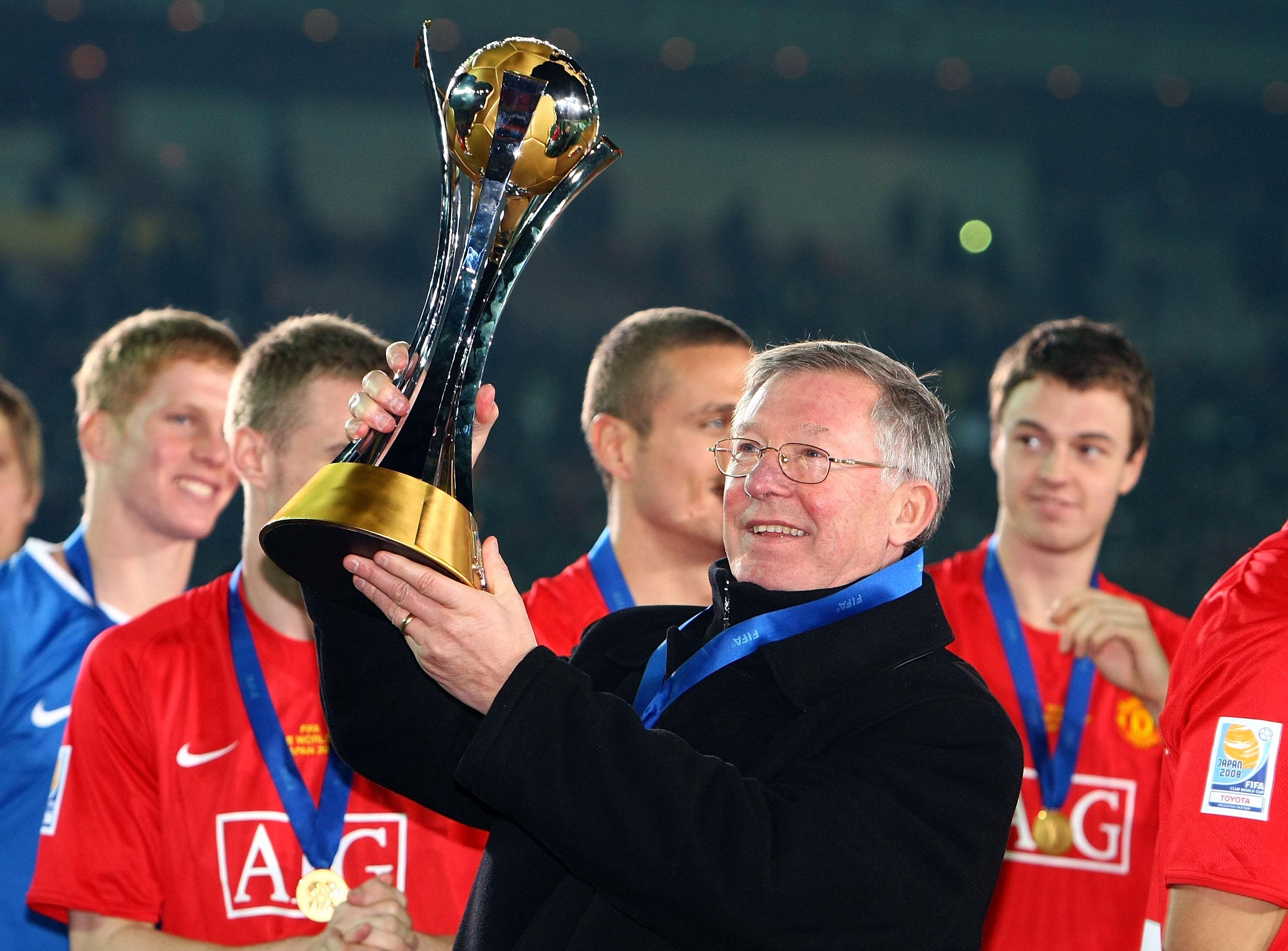
By the time Manchester United won the Champions League again in 2008, the Intercontinental Cup had been replaced by the FIFA Club World Cup.
United entered at the semi-final stage, beating Japanese side Gamba Osaka 5-3 before a 1-0 victory over LDU Quito in the final as Wayne Rooney scored the winner for Alex Ferguson's side in Yokohama.
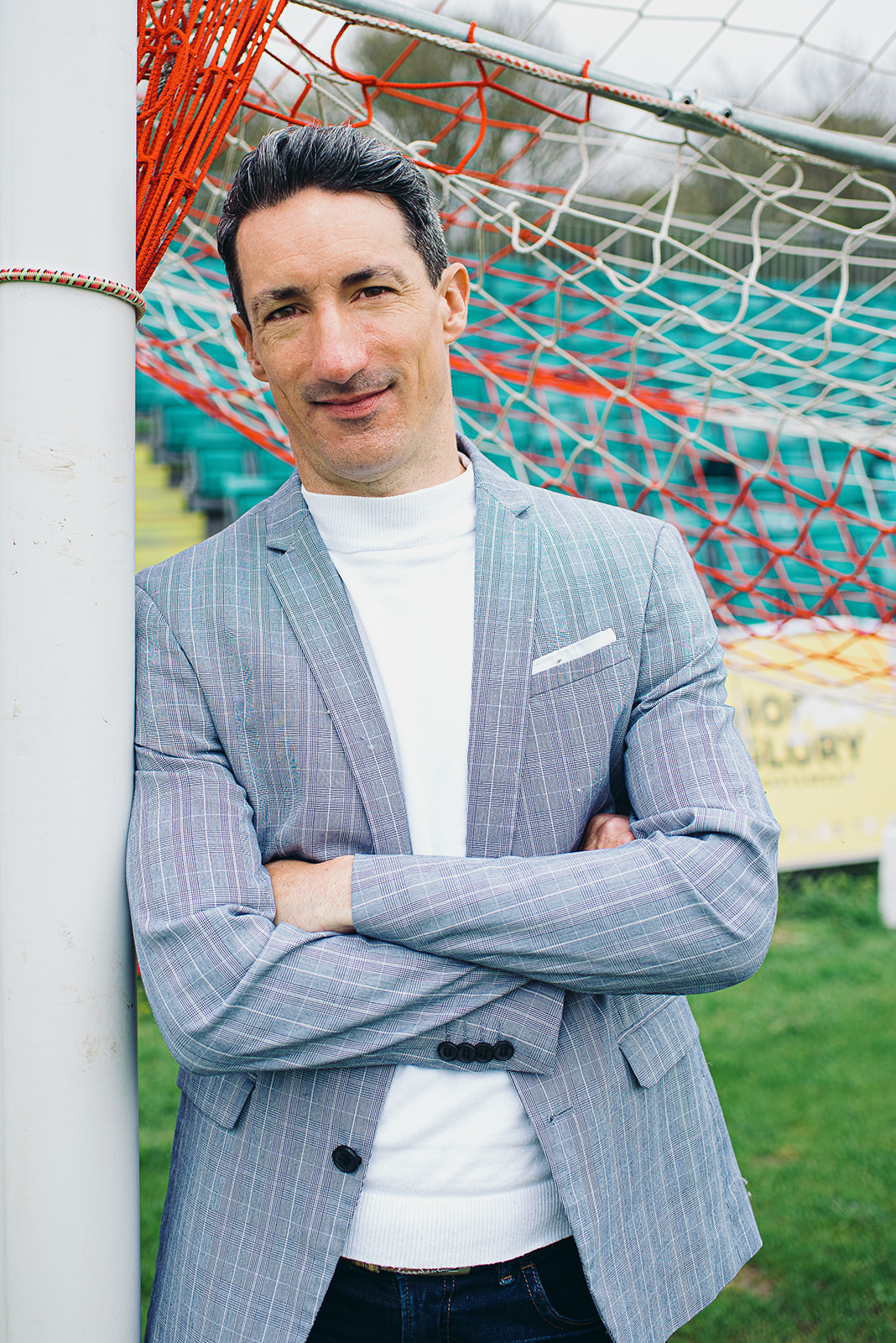
Ben Hayward is a European football writer and Tottenham Hotspur fan with over 15 years’ experience, he has covered games all over the world - including three World Cups, several Champions League finals, Euros, Copa America - and has spent much of that time in Spain. Ben speaks English and Spanish, currently dividing his time between Barcelona and London, covering all the big talking points of the weekend on FFT: he’s also written several list features and interviewed Guglielmo Vicario for the magazine.
 Join The Club
Join The Club










